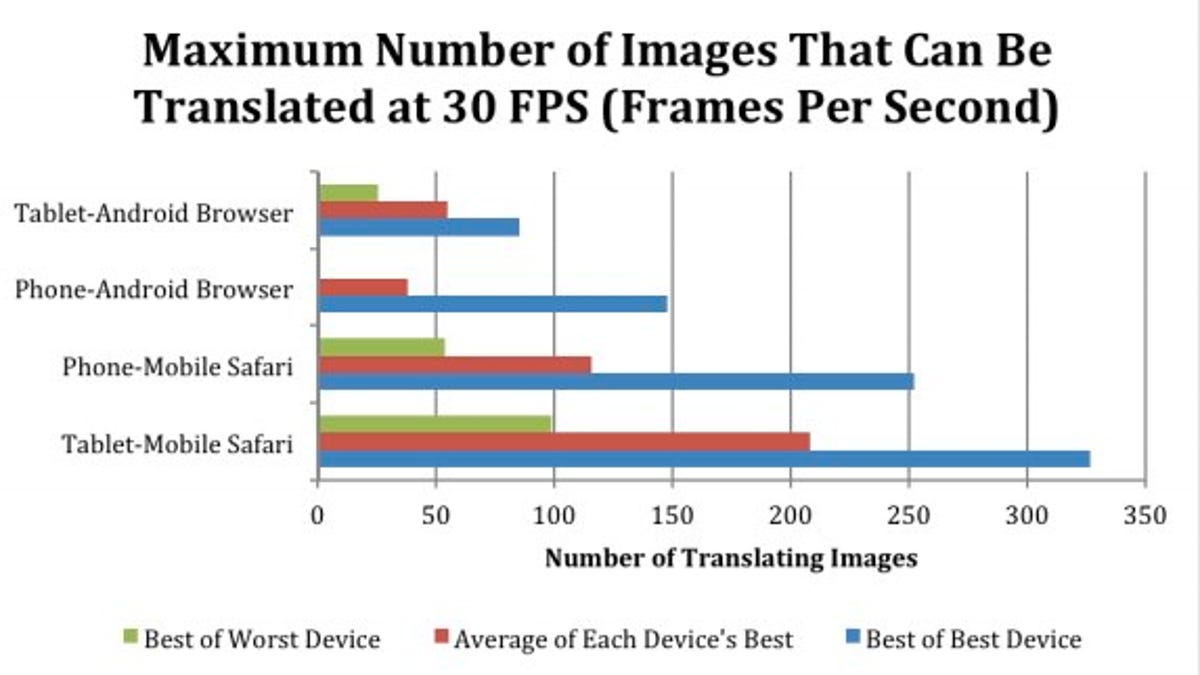Apple iOS HTML5 performance far exceeds Android
A new study from Spaceport says Apple's iPhones and iPads do a far better job of handling HTML5 in the browser than competing Android-based devices.

Both iOS and Android support HTML5 in the browser, but according to a new study, Apple's platform is doing a much better job of handling it.
Spaceport, a company that provides tools for developers to create multiplatform mobile games, revealed in a study published yesterday that Apple's iPad is about four times better at handling HTML5 in the browser than competing Android-based tablets. On the smartphone side, the average iPhone performance about triples Android-based handsets.
In order to arrive at those figures, Spaceport examined the maximum number of images that could be smoothly pushed through HTML5 in mobile browsers. The best Android tablet, which Spaceport did not reveal, was able to smoothly translate less than 100 images at 30 frames per second. Apple's iPad 2, on the other hand, smoothly translated more than 300 images at 30 frames per second.
The worst-performing iPhone model currently available, the 3GS, was able to handle 50 moving objects at that frame rate, while the worst Android handset, the Motorola Droid 2, couldn't handle a "single moving object on the screen across all possible animation techniques," Spaceport found.
HTML5 performance is increasingly important in the mobile space, considering that the gaming and video technology will carry mobile browsers for the foreseeable future. Late last year, Adobe Systems announced that it would no longer support mobile platforms with its Flash technology, leaving HTML5 to take control.
For Apple, that was music to its ears. Since iOS launched, the company balked at supporting Flash in the browser. Android, on the other hand, supported Flash, and many vendors tried to use that as a marketing tool. It didn't take. And judging by Spaceport's findings, they might have wanted to focus more on HTML5 than they have.
However, Spaceport found that things might be looking up for Android. In its testing, the Samsung Galaxy Nexus was the only Android-based device able to effectively handle two animation techniques--CSS 3D background and CSS 3D image. Here's why: the Galaxy Nexus was the only Android 4.0 (Ice Cream Sandwich) device included in the study.
Neither Apple nor Google has immediately responded to CNET's request for comment on the Spaceport report.
"With the Samsung Galaxy Nexus being an Android 4.0 phone, we can conclude that there have been significant improvements implemented in the Android browser with this upgrade," Spaceport wrote in its study. "For this reason, we do not recommend playing HTML5 games on an Android device with [version] 3.0 or below."
Still, don't get too excited about accessing HTML5 content from your smartphone or tablet browser. According to Spaceport, HTML5 applications running natively on the software perform much better than on iOS or Android.
"It will probably take years for HTML5 to reach native-quality performance," Spaceport wrote in its report.

